The IU Indianapolis Honors College has served as a beacon of excellence and student empowerment for 15 years and continues to do so.
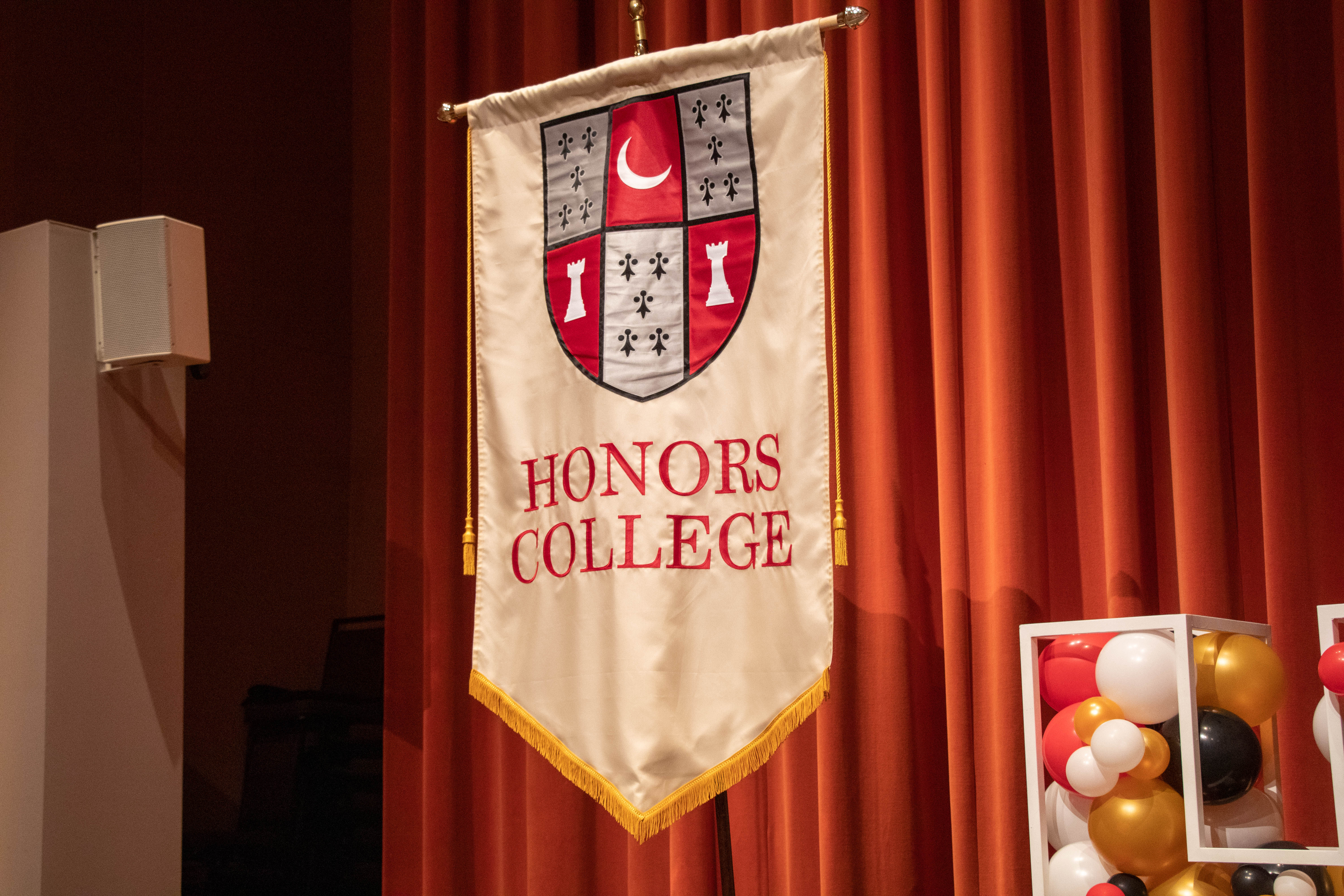
Initially founded in 2009, the Honors College was built on a commitment to serve students through significantly smaller classes, personalized advising, cocurricular programming, and vast opportunities to build meaningful connections with faculty. The college sought to serve as a powerful recruiting tool and to illustrate the campus’s ability to identify undergraduates with diverse backgrounds from Indiana and elsewhere.
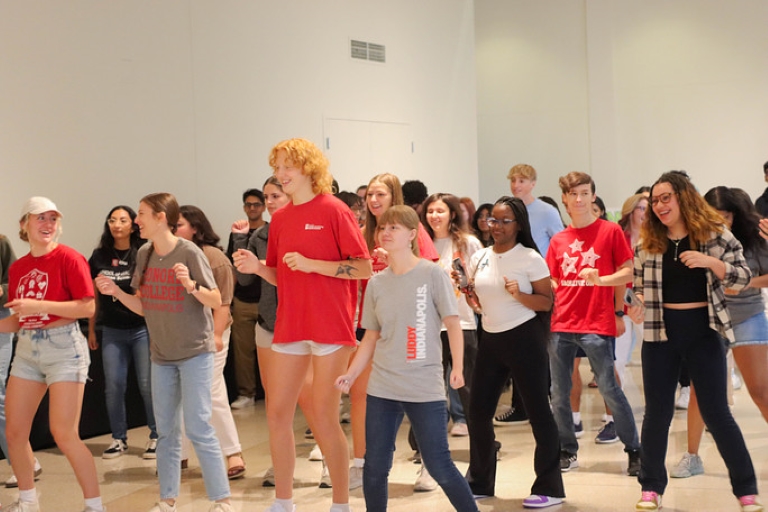
Honors Program serves as precursor
Prior to the establishment of the Honors College, the Honors Program served as a foundation in providing experiences and opportunities to enrich and complement undergraduate students’ educational journey. Launching in spring 1980, it operated to unite academic disciplines and to offer several interdisciplinary courses while heightening students’ critical and analytical thinking.
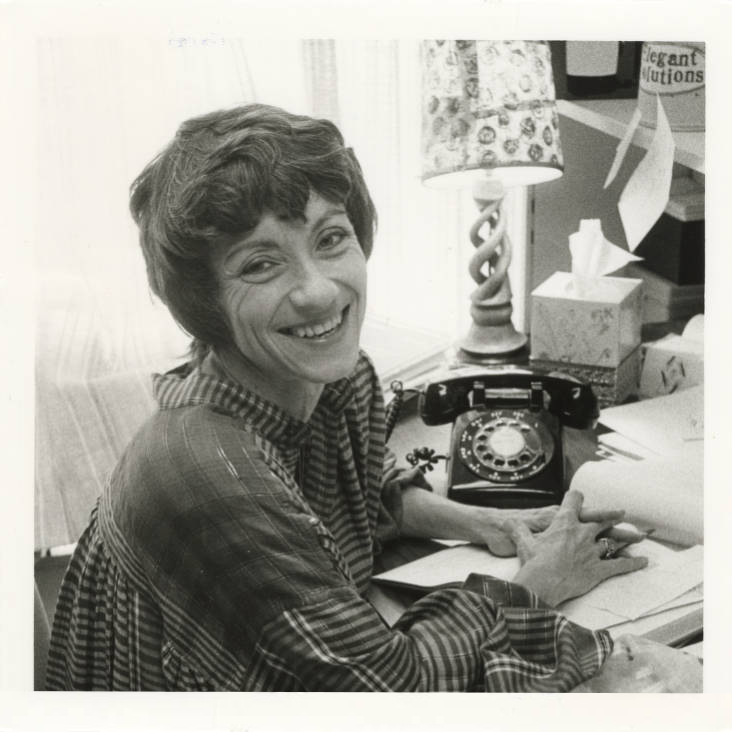
Donna Dial, an associate professor of economics and the program’s director at the time, highlighted the program’s ability to connect with local students in a 1979 press release.
“Our Honors Program is designed with great flexibility to allow for the diversities of our commuter campus,” Dial said.
The program would later evolve to become the Honors College in 2009.
The Honors College is brought to life
Support for the establishment of the Honors College started with the Academic Affairs Committee. The committee encouraged the Honors College’s development to help complement and strengthen the arts and sciences within the university.
The committee sought to establish new academic policies and practices, make adaptations to current policies in the already-established Honors Program, develop a mindful operational budget extending to the Honors College, and incorporate strong leadership to effectively carry out the vision.
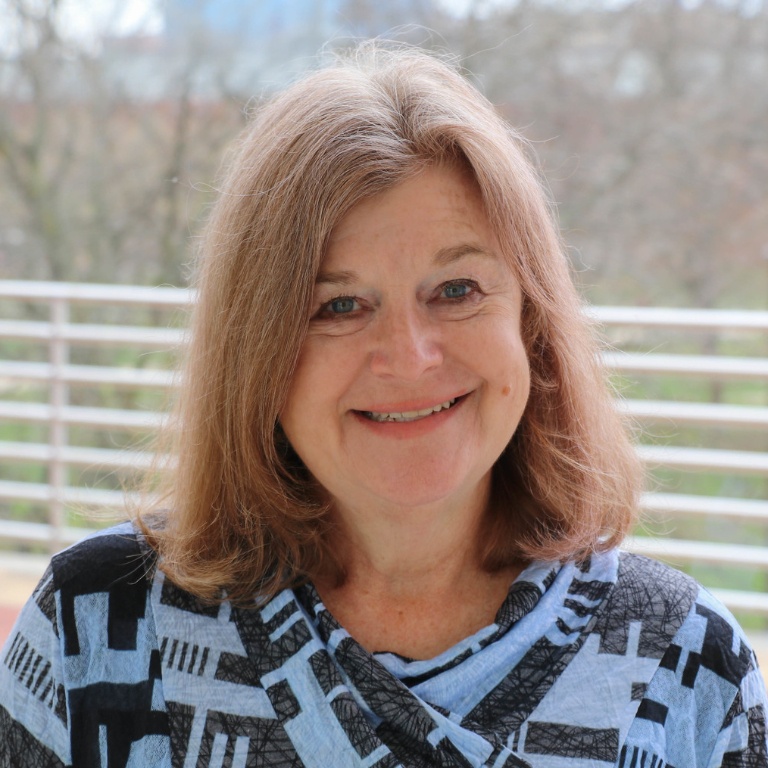
Lisa Ruch, assistant dean of academic affairs, has worked in the Honors College for 15 years and has seen first-hand the accelerated development of the college. She highlighted the college’s earlier days, noting how it started as a small program on the third floor of Taylor Hall. Today, it is a campus catalyst of educational enrichment.
"We have more students, more staff, and we offer more scholarships and a lot of different opportunities," Ruch said.
We have more students, more staff, and we offer more scholarships and a lot of different opportunities.
Lisa Ruch
Comprehensive dedication and an excitement for tomorrow
To date, the Honors College has maintained its founding vision, while placing continual emphasis on the values of:
- Academic excellence
- Personal and social responsibility
- Engaged learning
- Equity and inclusion
Through a dynamic and dedicated set of faculty and staff, the college prepares students with real-world opportunities and applications. The Honors College also offers the Bepko Scholars and Fellows program to students who demonstrate strong levels of leadership and commitment to community service.
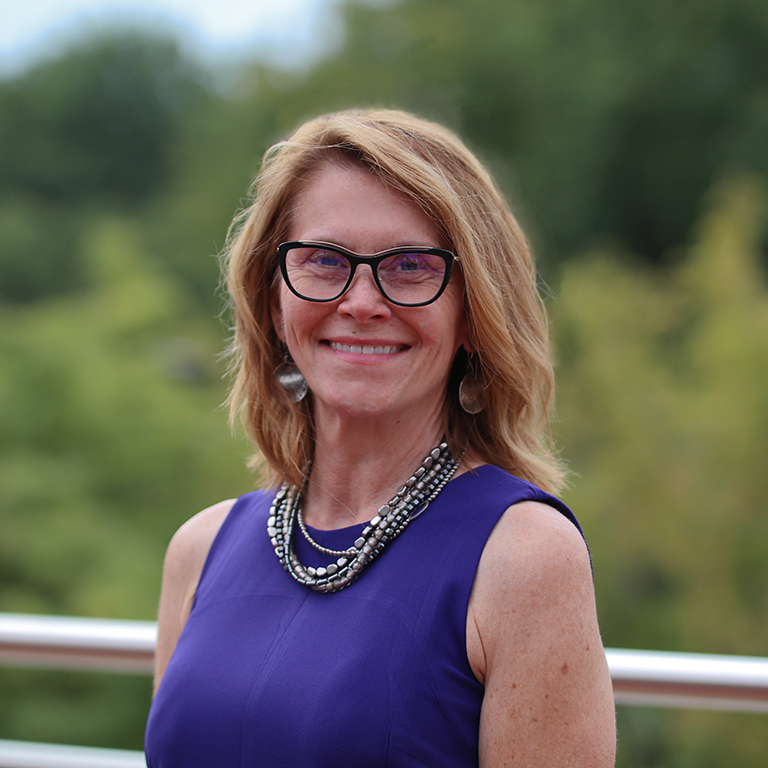
Kristy Sheeler, dean of the Honors College, attributes the college’s community as one of its greatest, most unique traits.
“We are a small, close-knit community on an otherwise large campus who come together around our shared values of academic excellence, personal and social responsibility, engaged learning, equity, and inclusion,” Sheeler said. “Our students have the opportunity to work one-on-one with professors in classes and develop projects that will allow them to pursue a topic of interest more in depth than the regular syllabus.”
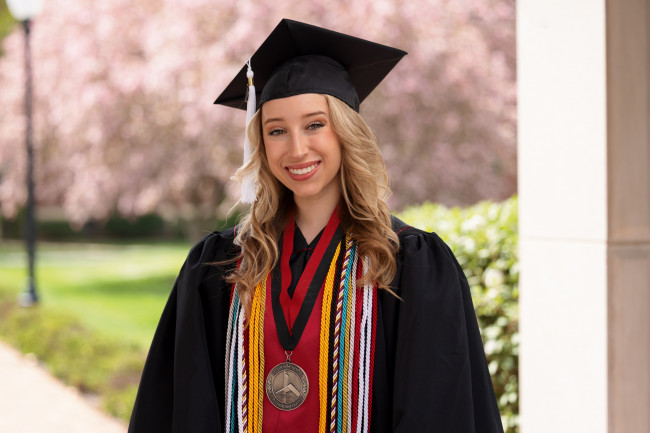
Myra Kivett, an Honors College alumna with a bachelor’s degree in communications and a master’s degree in applied communication, was a Bepko Scholar during her time at IUPUI (now IU Indianapolis). Kivett went on to serve as the undergraduate commencement speaker in 2023 and currently works as an adjunct professor teaching COMM-R 110Fundamentals of Speech Communication.
Kivett, who grew up in Fishers, first heard about the Honors College and Bepko Scholars and Fellows program from her mother’s friend who recommended it for its exclusive opportunities. During an application interview with Sheeler, Kivett was moved by Sheeler’s open love and appreciation for students committed to community work. It did not take Kivett long to decide that she wanted to spend the next four years with the Honors College.
While in the Honors College, Kivett was placed in the Honors Peer Mentor Program, where she was provided with guidance and advice for her first year as a student. In her second year, she took the opportunity to serve as a mentor. Above all, Kivett expressed gratitude for how invested the Honors College and faculty are in preparing students for the professional world.
Other alumni of the college highlighted its notable family-like atmosphere, exceptional educational offerings, and opportunities for professional development.
Weston Wright
 "The Honors College program focuses on a holistic approach to education. This encourages students to not only be active in the classroom, but also in the community (such as research, volunteer, and experiential learning). The culture of the Honors College encourages curiosity and critical thinking. After you graduate, you begin to appreciate the network you have built of intelligent colleagues that have similar motivations and career interests. I am currently in my last year of residency at IU in neurology, and there have been a myriad of experiences where I worked with fellow Honors College graduates on the inpatient wards, in the emergency room and when consulting specialist teams.” —Weston Wright
"The Honors College program focuses on a holistic approach to education. This encourages students to not only be active in the classroom, but also in the community (such as research, volunteer, and experiential learning). The culture of the Honors College encourages curiosity and critical thinking. After you graduate, you begin to appreciate the network you have built of intelligent colleagues that have similar motivations and career interests. I am currently in my last year of residency at IU in neurology, and there have been a myriad of experiences where I worked with fellow Honors College graduates on the inpatient wards, in the emergency room and when consulting specialist teams.” —Weston Wright
Sarah Bahr
 "The Honors College, more than anything, gave me a place to belong on campus. The sense of community fostered through events for fellow Bepko Scholars, my first-year housing in a community with other Honors scholars, and group community service activities through organizations like Honors Academics for Civic Engagement and ALDPES made a campus that does have a lot of commuter and nontraditional students feel [at] home. The Honors credit requirement also encouraged me to pursue honors contracts with professors on subjects of interest to me both personally and professionally, such as a semester-long independent study I did on the challenges women in sports journalism have historically faced and continue to face in locker rooms and press boxes.” —Sarah Bahr
"The Honors College, more than anything, gave me a place to belong on campus. The sense of community fostered through events for fellow Bepko Scholars, my first-year housing in a community with other Honors scholars, and group community service activities through organizations like Honors Academics for Civic Engagement and ALDPES made a campus that does have a lot of commuter and nontraditional students feel [at] home. The Honors credit requirement also encouraged me to pursue honors contracts with professors on subjects of interest to me both personally and professionally, such as a semester-long independent study I did on the challenges women in sports journalism have historically faced and continue to face in locker rooms and press boxes.” —Sarah Bahr
Gisela Perez
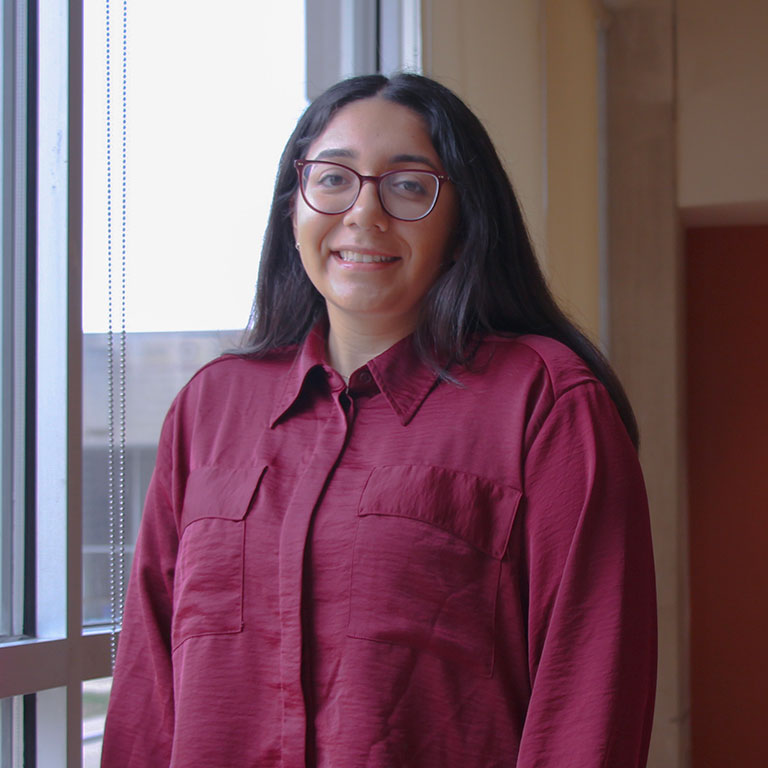 "The Honors College opened so many doors for me and offered me support both academically and emotionally. The Honors College also gave me the opportunity to attend leadership workshops and learn how to work on complex projects independently! Through the Honors College, I developed stronger research skills, primarily through honors contracts and projects that were research heavy. These experiences not only deepened my understanding of various topics but also taught me how to effectively analyze and present complex information.” —Gisela Perez
"The Honors College opened so many doors for me and offered me support both academically and emotionally. The Honors College also gave me the opportunity to attend leadership workshops and learn how to work on complex projects independently! Through the Honors College, I developed stronger research skills, primarily through honors contracts and projects that were research heavy. These experiences not only deepened my understanding of various topics but also taught me how to effectively analyze and present complex information.” —Gisela Perez
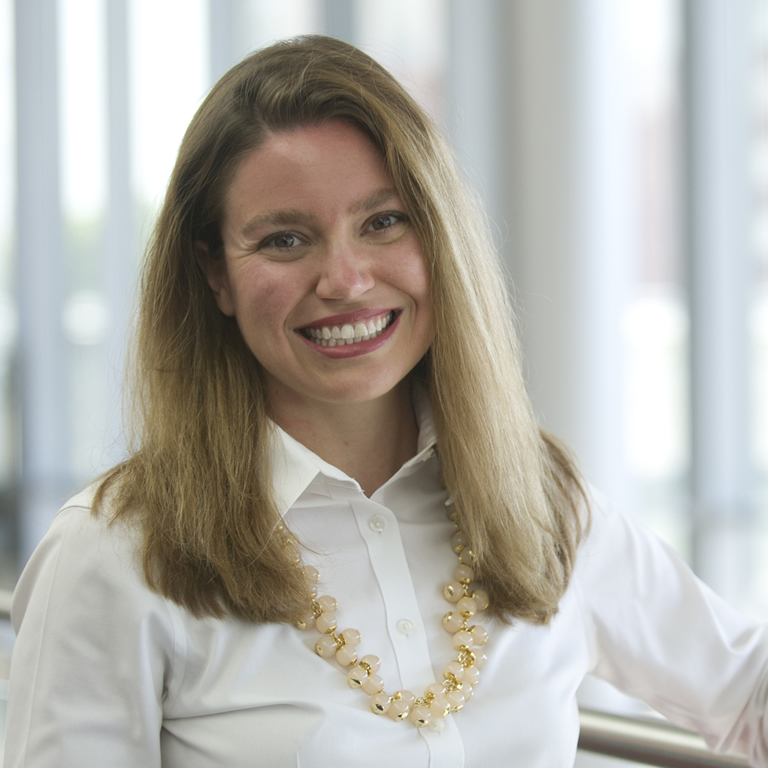
Margaret Miley, director of admissions and scholarships, emphasized how the Honors College encourages students to make independent decisions related to pursuing personal interests. As a result, many students can dive deeper into research and other types of channels that they may not have otherwise felt they had access to.
“The encouragement to go deeper into subject matter, plus the encouragement to build your sense of self outside of just taking a course, means that at the end of the four years of undergraduate work, hopefully you know a little bit more about what you’re interested in, what you value, and what kind of life you want to live,” Miley said.
Miley also acknowledged the Honors College for its dedication to serving students from an individualized approach.
"We've done a pretty good job of recognizing that our different students are going to have different needs, and we want to welcome all of them,” Miley said.
A future of perpetual student success
While the Honors College has already continued to display promising patterns of student success, Sheeler emphasized the unwavering goal the college pursues.
“Our goals continue to focus on supporting and challenging our students as they work toward their academic and personal goals that position them for a lifetime of success,” Sheeler said.
Sheeler also noted the college’s efforts in recent years to consistently review and improve the Honors College application and admission process to ensure that the college welcomes and supports students from all backgrounds.
“We are proud of the work we’ve done to welcome our largest incoming class in some time and our most diverse class ever,” Sheeler said. “For example, over 25% of our incoming class this fall consists of students from backgrounds historically underrepresented in honors, as compared with approximately 5% in the fall of 2017. Our long-term goal is to approach the make-up of the campus as a whole with our honors student population.”

